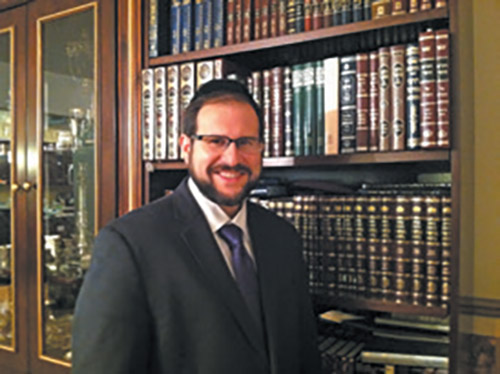
Three of our children have had food allergies throughout their lives. The earliest indication of the allergies was from eczema that developed on their skin during late infancy. Of course, it’s most challenging for the children who cannot eat what their siblings and peers are enjoying, but it’s also extremely hard, as parents, to not be able to do anything about it. Every time we buy outside food, we have to be vigilant about the ingredients, including asking what other foods are made together with the food they are ordering.
Last Tuesday, I took our two daughters, Aviva (just bat mitzvah) and Chayala (6 years old), to their allergist for a “food challenge.”
Briefly and over simply explained, every few years someone with allergies will undergo a blood test to determine if his/her “numbers have gone down.” However, the blood test is not wholly conclusive. Therefore, even if there is an indication that the “numbers have dropped,” the next step must be an actual food challenge.
In the doctor’s office, the patient is given a very controlled amount of the food he is allergic to. Following that there is a waiting period to see how the patient tolerates the new food. After about 20 minutes of monitoring, the doctor or nurse will check the patient to ensure that there has not been any negative reaction, such as accelerated heart rate, or a rash, or hives. If all is well, a little more of the food is given to the patient, followed by another waiting period to ensure that there isn’t any negative reaction. After a few cycles of increased amounts of the food being administered, the patient waits a little over an hour. If there has still not been any reaction, the patient is deemed no longer allergic to that particular food.
After a long morning of food challenges, by the grace of Hashem, we were exhilarated to be informed that both Aviva and Chayala had passed. Aviva is no longer allergic to dairy, and Chayala is no longer allergic to eggs.
When we arrived back in Monsey we went straight to a local pizza shop. For the first time in her life, Aviva enjoyed a slice of pizza, while Chayala finished the French toast and omelet we had brought along.
It was cute when Aviva asked me why there was some liquid atop her pizza. She never looked at a slice so closely before. (Since last Tuesday she has had a slice of pizza every day.) On Shabbos, for the first time in her life, she had to remind herself not to eat something milchigs because she was fleishigs (until now, everything she ate was fleishigs or pareve).
Later that afternoon, as I was driving, I was listening to a recorded shiur from Rav Matisyahu Salomon, shlita, about the Aseret Hadibrot.
The third of the Dibrot states: “You shall not take God’s Name in vain!” Rav Matisyahu related a novel explanation from the Ramban in his sefer, Emunah Ubitachon:
The Ramban notes that often in life we feel inspired or particularly “connected” to Hashem. It may be a feeling of gratitude for a special blessing we have been endowed with. That inspiration/connection/gratitude is a manifestation of the Name of Hashem resting upon us. The Torah is exhorting us to ensure that we not allow that moment to be “in vain.”
The only way to take advantage of a moment of inspiration is by “putting it into action,” such as by accepting upon oneself to do something with that elevated feeling. As we all know from personal experience, if one tarries before taking on such a commitment, the inspiration quickly fades and will soon be nothing but a nebulous memory and a lost opportunity.
Rav Matisyahu notes that even a small “kabbalah” (spiritual commitment) fulfills this dictate, as long as it’s something that helps us capitalize on the gift of that moment.
I felt that this was a personal message to me that day. Our family had been granted such a wonderful blessing, and it was incumbent upon me to do something positive with that feeling. So, I committed, bli neder, that at least when I eat pizza and eggs, to think for an extra second before making the bracha, to appreciate the gift that Hashem has given me—not only that such food is available, but that I can enjoy it too.
And if that causes me to appreciate other things that I take for granted every day, even better!
The Gemara states that when Adar enters we increase our simcha (Ta’anit 29a). Purim is a celebration of life itself, of a nation doomed to genocide being granted a new lease on life. Part of the joy of Adar and Purim is the joy of living and breathing, appreciating the vital things we generally overlook.
May the joy of these days infuse us with happiness that lasts us throughout the year and throughout our lives.
By Rabbi Dani Staum
Rabbi Dani Staum, LMSW is the rabbi of Kehillat New Hempstead, as well as guidance counselor and seventh-grade rebbe in ASHAR, principal at Mesivta Ohr Naftoli of New Windsor, and a division head at Camp Dora Golding. He also presents parenting classes based on the acclaimed Love and Logic methods. For speaking engagements, his email address is: [email protected]. His website is: www.stamtorah.info.










